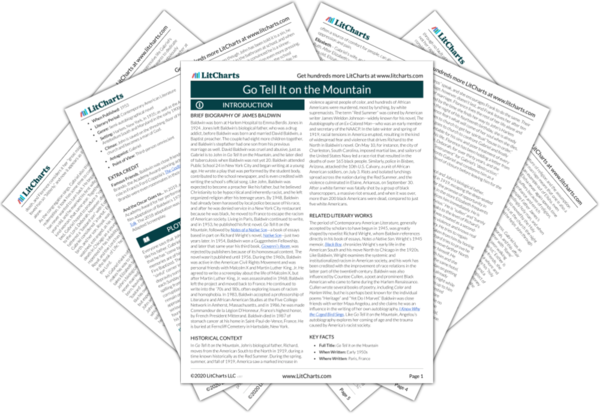One morning on his way home,
Gabriel passed the tree that marked the small
mountain beyond which was
Rachel’s cabin. He thought “of all the mornings he had mounted here and passed this tree, caught for a moment
between sins committed and sins to be committed,” and when he reached out and touched the tree, he cried: “Oh, Lord, have mercy! Oh, Lord, have mercy on me!” He “wept like a little child” and prayed for God to “save” him. There, “in that valley where his mother had told him he would find himself,” Gabriel found the Lord. Gabriel always swears that he heard a
song afterward. “I heard my mother singing,” he claims, “like she knew if she just called Him, the Lord would come.”
